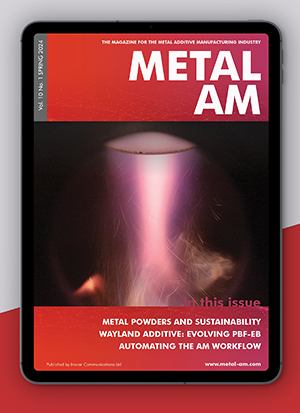Lucideon partners with Naval Nuclear Laboratory to provide materials expertise
February 28, 2024
Lucideon, headquartered in Staffordshire, UK, is partnering with the US Naval Nuclear Laboratory (NNL) to help develop mission-critical technology to support component supply for the US Navy nuclear-powered fleet. Working with NNL in support of the Naval Nuclear Propulsion Program, Lucideon will contribute to research into the Hot Isostatic Pressing (HIP) process, which uses high pressure and elevated temperatures to densify materials.
From Lucideon’s two US sites – Greenville, South Carolina, and Schenectady, New York – the company will evaluate the thermal, physical, mechanical, and microstructural properties of a nickel-based superalloy, which has undergone the HIP process over a wide range of processing conditions.
Lucideon is a leading development and commercialisation organisation (DCO) with a global service portfolio, bringing together innovation and commercial knowledge. Its expertise spans the nuclear sector, in areas including new materials development and selection, comprehensive testing and analysis, and Additive Manufacturing support.
Lucideon’s work will be supported by its partner Dynamic Systems Incorporated (DSI), Austin, Texas, which has more than sixty years’ experience in the thermophysical simulations of materials. Complex evaluation of the material’s thermal diffusivity and expansion will be overseen from Lucideon’s base in the UK, working from the new high-technology AMRICC Centre.
The project will be led by NNL’s Reactor Equipment Development unit, which is currently working to develop innovative manufacturing methods to enable new designs in support of the next generation of US Navy reactors.
“NNL is driving forward the development of this technology in an effort to supplement conventional forging for large, high-value, metallic components required within nuclear propulsion systems,” shared Tony Kinsella, CEO of Lucideon. “Increasing production volumes for submarines and surface ships are putting stress on existing supply chains, and this technology offers an opportunity to expand capacity and reduce the significant lead times that exist today.”
“Under the twelve-month programme, we will be drawing on our world-leading material science testing and assurance capabilities, expertise, and technologies to enable and accelerate the R&D activity,” Kinsella continued.
“Ultimately this will provide the robust data NNL needs to fully characterise the PM-HIP process,” Kinsella added. “This is a highly complex project, which has the potential to deliver significant benefits to the US Navy nuclear-powered fleet.”
Download Metal AM magazine

















